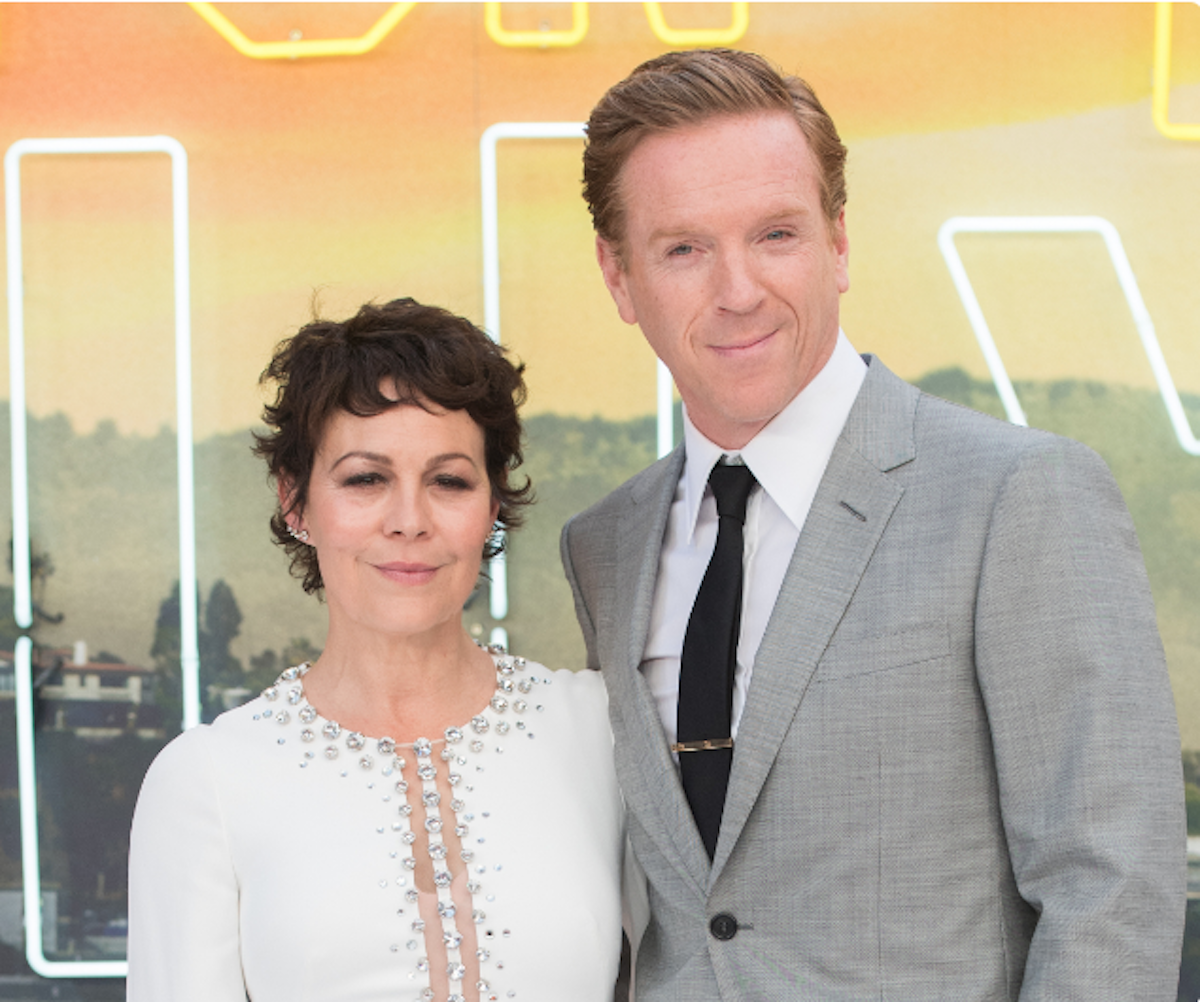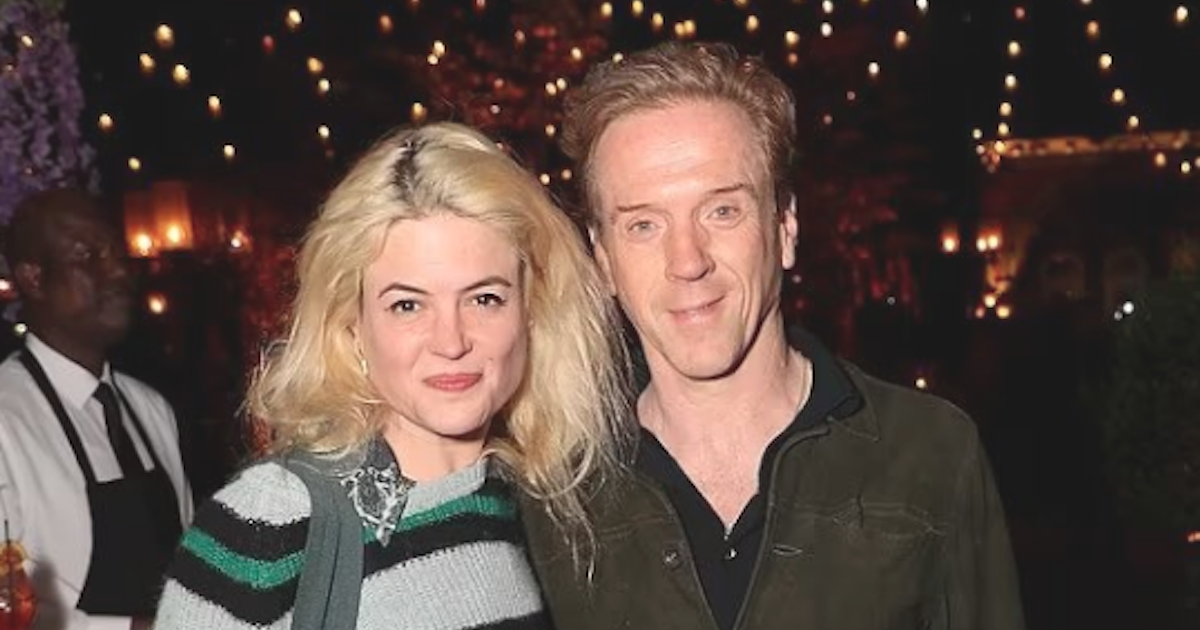Damian Lewis Found Love After Loss
- Emmy-winning actor Damian Lewis, 52, lost his wife, Peaky Blinders star Helen McCrory, to breast cancer more than two years ago. Despite his devastating loss, the actor has found love again with singer-songwriter Alison Mosshart, 44.
- Lewis confirmed his relationship with Mosshart, 44, in July 2022 at an event in London where they were photographed embracing each other. She is the first person Lewis has publicly dated since losing his wife.
- Damian Lewis’ late wife Helen McCrory died from breast cancer at age 52, after nearly 14 years of marriage. They had two children together a daughter Manon, now 16, and son Gulliver, 15.
- Moving on and dealing with grief is different for everyone; in Lewis’ case, dating someone new is something he’s decided to do after the death of his wife.
- Coping with grief after the loss of a loved one, or after a diagnosis of a disease like cancer, can be helped by seeing a psychiatrist, counselor, or oncological social worker.
The 52-year-old actor, who temporarily walked away from Hollywood in the wake of the Peaky Blinders star’s death to raise his two teenage children, Manon and Gulliver, appears to be doing well as he’s stepped into the world of music and started dating singer-songwriter Alison Mosshart.

Lewis and Mosshart, the lead vocalist for rock bands The Kills and The Dead Weather, are seemingly in a happy relationship and were most recently spotted together at an afterparty in May 2023 for the premiere of the American romantic comedy film “Book Club: The Next Chapter,” according to the Daily Mail.
In fact, their relationship is something the late McCrory would have wanted. Lewis wrote in The Sunday Time how she jokingly hoped for “Daddy to have lots of girlfriends.”
“She has been utterly heroic in her illness. Funny, of course generous, brave, uncomplaining, constantly reminding us all of how lucky we've been, how blessed we are,” Lewis, most known for his role on the Showtime series “Billions” and for portraying U.S. Army Major Richard Winters in the Band of Brothers, wrote.
Expert Breast Cancer Resources
“Only a couple of weeks ago she said to us from her bed, ‘I want Daddy to have girlfriends, lots of them, you must all love again, love isn't possessive, but you know, Damian, try at least to get though the funeral without snogging someone.'”
Lewis has since been more in touch with his music side, having released his debut album, entitled “Mission Creep,” last month.

The dad of two, often takes to Instagram to share video clips of himself playing his guitar and singing, and announced the release of his debut album on June 16.
He wrote, “So this is it! My debut album Mission Creep is out today. I hope there's songs that are going to make you wanna sing and dance. It's rootsy and bluesy, recorded with my magnificent band who bring a jazz vibe with them, but it ain't a jazz album.
“It's….well….a collection of songs with varied vibes, held together beautifully by my producer, Giacomo Smith. We're really proud of it and we're excited to share it with the world. Thank you to everyone who's been part of this process so far..”
That same day, Mosshart also took to social media to share the news, writing alongside a post featuring his album cover, “Hugest congrats to @damianlewisreallyofficial on release day of his first album on Decca. This record is beautiful inside and out. Happiest release day baby!”
Helen McCrory's Breast Cancer
Damian Lewis’ late wife Helen McCrory died from breast cancer at age 52, after nearly 14 years of marriage. They had two children together a daughter Manon, now 16, and son Gulliver, 15.
Following her passing, Lewis took to social media to announce he was heartbroken after his wife's “heroic battle with cancer.”
“The beautiful and might woman that is Helen McCrory has died peacefully at home, surrounded by a wave of love from family and friends,” he wrote. “She died as she lived. Fearlessly.”
— Damian Lewis (@lewis_damian) April 16, 2021
Although we don't more details into McCrory’s cancer battle it’s important to be aware of the signs of breast cancer and when to get screened.
Trying to catch breast cancers at the earliest stages requires that people prioritize breast self-exams and breast cancer screenings.
There are many different recommendations regarding when people should start getting mammograms. An independent panel of experts called the U.S. Preventive Services Task Force recently changed their guidelines to say that women of average risk should begin with screenings every other year starting at age 40, but other organizations like the American Cancer Society say “women between 40 and 44 have the option to start screening with a mammogram every year.”
When Should I Get a Mammogram?
Still, there is a consensus that all women should talk with their doctor about the benefits and harms of mammography as well as when and how often they should be screened based on their individual risk factors.
According to the National Cancer Institute, "women with risk factors for breast cancer, such as certain changes in the BRCA1 or BRCA2 gene or certain genetic syndromes may be screened at a younger age and more often." T
Make sure you talk to your doctor about an individualized screening plan and ask questions like whether or not you have dense breasts and if a 3D mammogram is right for you.
In addition, make sure you're performing breast self-exams. SurvivorNet advisor Dr. Elizabeth Comen says breast cancer prevention and awareness starts with making sure women are comfortable with their breasts and knowledgable of what they feel like normally.
"For some women, that may mean going to their doctor and walking through what a self-breast exam might feel like so that they know what normal breast tissue feels like, so that if they do feel anything abnormal whether it's a lump or discharge from the nipple that they know what to ask and what to look for," she told SurvivorNet in an earlier interview.
Surviving the Loss of a Partner
Fighting your own cancer battle is one of the toughest experiences in life; watching the disease take someone you love is a different kind of pain. In some cases, a spouse with cancer can take proactive steps to talk about what might come after.
"She wanted to make sure that I knew that it was OK … she really wanted me to have another relationship after she was gone," one widower told SurvivorNet in an earlier interview.
John Duberstein lost his wife, writer Nina Riggs, to metastatic triple negative breast cancer. He says that while he was watching her suffer from the disease, he couldn't help but wish things could go back to normal … but Riggs had already embraced her new normal.
The Toughest Conversations: Losing a Spouse to Cancer
"I really wanted things to go back to normal, whatever that meant,” Duberstein previously told SurvivorNet. “She was not for that. She wanted to embrace the existence that she had, even before she knew she was going to die imminently.
“I did not want to talk about what was going to happen with me after Nina died. Nina is the one that really brought it up, she brought it up a number of times,” he added.
Dating After Cancer: Getting Intimate With the New You
Duberstein explained that even with the pain of losing his wife, and even though he didn't want to talk about it at the time, he's so glad they had those seemingly uncomfortable conversations. “In retrospect, I can't even explain how glad I am that I had that.”
This is a reminder that having those uncomfortable and painful conversations with your partner can be fundamental to your well-being as you move forward in the grieving process, alleviating the guilt felt in starting to date again, and/or eventually marry.
Tips for Dealing With Cancer in Your Relationship
Cancer can place a huge strain on any relationship. The state of your relationship with your significant other before a cancer diagnosis can influence how you both endure the cancer journey.
Psychologist Susan McDaniel said in an earlier interview with “Today” that cancer can either strengthen healthy relationships or widen the divide for couples already facing conflict.
So when you're faced with a diagnosis or treatment, it can help to lean on the bond you've built with your partner.
For healthy couples confronted with cancer, “They recognize how they feel about each other, the petty stuff drifts away. There's a certain kind of intimacy in having to face something really serious,” Dr. McDaniel said.
"For couples where there's already significant difficulties that haven't been resolved, and if the illness hits at some of that, then it's really hard," Dr. McDaniel added.
Coping With Grief
Grief is known to "come in waves" and never fully leave you after a loved one has died. To grieve is to have fully loved someone, and that's a beautiful thing but the process of grief, can be fulling of missing, longing, and sadness.
Coping with grief after the loss of a loved one, or after a diagnosis of a disease like cancer, can be helped by seeing a psychiatrist, counselor, or oncological social worker.
You don't have to suffer through your grief alone. Seek outside support when you've lost someone close to you.
Dealing With Grief After a Cancer Diagnosis
Contributing: SurvivorNet Staff
Learn more about SurvivorNet's rigorous medical review process.


